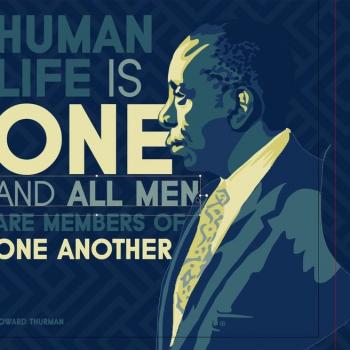I must confess that most years the Fourth of July is one of my favorite holidays. From my childhood, I have loved parades, outdoor grills, and fireworks. I never miss the Fourth of July Concert on the Capitol Mall on PBS and these days fireworks on Craigville Beach. But, more than that, I love the marching bands and music of the day – “The Star Spangled Banner,” “God Bless America,” and anything by John Philip Souza. I’m a small town boy at heart, and now live in a Cape Cod village with bicycle parades and homemade floats. It is a day to celebrate our land and its freedoms. I was raised an Eisenhower Republican, believe in fiscal responsibility, and support peace through strength and alliance.
But, this year things are different. We a nation in moral, economic, leadership, civil, and existential freefall. We are overwhelmed by protest and pandemic. We still hear stories about children separated from their parents on our borderlands and the dangers of Coronavirus in detention centers, First Nations’ reservations, among “essential workers, many of whom are undocumented, police violence, and now the closing of the wall to USA citizens by the European Union. I love my country but I am uncertain what exactly to celebrate. In the politization of face masks, we have lost our national spirit. Our nation’s highest elected official no longer even attempts to provide moral authority in domestic or global affairs, and spouts a cheap and easy patriotism. We are a large nation that has abandoned its spiritual GPS.
Now, I’m not one to join God and country too closely. In contrast to those who conflate Jesus and the current national leader, placing him and Jesus on par as their savior and seeing mask wearing a form of infidelity to the Donald Trump if not Jesus, I believe that theocracy is dangerous for nations and religions alike. Still, national holidays – not just the USA holidays – can bring out our deepest feelings of gratitude, love of the land, and hopefulness. They are not just celebrations of geography or opportunities for flag waving, they are occasions for reflection and, at times, confession, of the dissonance between reality and aspiration in our national life.
All countries are imperfect and ambiguous and the USA is no exception. Many people feel especially dismayed this year. We have high ideals and often dismal realities. We have often responded too slowly to the challenges of the moral arc of history or the clear factuality of scientific investigation and the realities of systemic injustice. We have proclaimed the equality of humankind and defined some persons as non-human, unworthy of self-determination, equality, or loving relationships. We have affirmed the quest for life, liberty, and the pursuit of happiness and condemned some persons, based on the accidents of economics, ethnicity, place of origin, or sexuality, to lives of misery, duplicity, and limitation. We have touted the melting pot but discriminated against immigrants. We speak of “crowning” our good with brotherhood – and sisterhood – and yet turn our backs on family values and threaten to strip immigrants of constitutional due process.
Now, some preachers and politicians say the solution to America’s problems is getting back to God. They believe that a National Day of Prayer will bring America back to its glory days. While I affirm the importance of values and spirituality in national wellbeing, I believe that there is a more important question. It centers on: What kind of God do we invoke when we ponder the life of a nation – every nation – and the destiny of a planet? In raising the connection between our images of God and our national policies, I’m not suggesting we return to a theocracy. I cherish our pluralism and the implied democracy of revelation, even among atheists and agnostics. We must not baptize our policies with the words “God’s will” or “the authorities are ordained by God.” But, for those of us who call ourselves people of faith, how we understand God may be a matter of life and death, and may be a formative factor in shaping foreign, legal, and economic policy.
As I reflect on our religious history, I believe that the unofficial god of USA has been the god of manifest destiny, the Calvinist god, who guided our pilgrim parents across the ocean, inspired them to settle the land from sea to shining sea, and gave them the right to destroy its earliest inhabitants. This god “chose” America for a destiny, making us – like the children of Israel – exceptional among the nations. This god gave us this land just as God gave Canaan to the Hebrews. While such a view has been motivational in terms of national expansion, leading to the formation of a great country we have today, it has not always been inspirational or ethical – it has led to slavery, genocide, and chauvinism. Many national political and religious leaders still celebrate this “almighty” god, who favors the USA among peoples and certain Americans as God’s beloved, giving us the right to do what we please with “our” resources, even when they fall outside our nation’s borders! And doing what we please with children who cross our borders!
Now, I am uncertain if our political leaders will embrace alternatives to the God of manifest destiny. Versions of American exceptionalism – and now America first and American xenophobia – show up in virtually every politician’s speeches, sometimes seriously, often simply as a gratuitous comment. But, let me suggest a vision of god which allows us to join self-affirmation with humility and the affirmation of the giftedness of other nations. Christian doctrine affirms the omnipresence of God, but seldom explores the lived and practical meaning of this doctrine. To say that God is omnipresent is to assert that God is present and acting in every person and situation. From this perspective, there are no boundaries either to love or revelation, that is, if we affirm that the God we worship reflects the life and teaching of Jesus. For Jesus, love was the primary spiritual principle. God’s love included our enemies as well as our fellow citizens, it embraced the poor as well as the wealthy, and the forgotten as well as the privileged. God’s love embraced the pilgrim, the stranger, the foreigner, regardless of origin! Accordingly, God’s presence and action are to be understood primarily in terms of love. The only power, from this perspective, that God embodies is loving power and this must ultimately include everyone, not just a select few. There are no outsiders to God’s love – and this includes nations as well as individuals. God loves the USA, and God loves every other people. This does not determine with exactness public policy, but it affirms the importance of compassionate forms of public policy.
Will a change in images of God’s nature change USA foreign, legal, and economic policy? Will changes in images of God change our immigration policy and behavior toward families crossing the borders seeking the same thing our ancestors once did? Will new images of God inspire Christians to critically examine scientific research and affirm its importance for our wellbeing? I can’t claim to know the answer. But I am sure that it will change our language and that’s an important place to start. The words we use shape, to some extent, how we view ourselves and others – in terms of their value and rights. If we affirm a god of unlimited and unbounded love, we will no longer be able to call ourselves “exceptional” without affirming the value of other nations. While the USA may have a historical vocation, so do other nations. We love our country, but so do the citizens of other lands, even those who we describe as enemies and competitors. This beginning may help us, at the very least, to embody the words of Abraham Lincoln, that we pray not for God to be on our side, but to be on God’s side in our personal and national lives.
While gratefully singing our National Anthem this Fourth of July, we might also join in singing “This Land is Your Land, This Land is My Land” or “Lift Every Voice and Sing” as calls to affirm all the peoples of our land and an inspiration to truly seek liberty and justice for all. We might also raise our voices to the “Song of Peace” ( also, known as “This is My Song” to the tune of Finlandia):
This is my song, oh God of all the nations,
a song of peace for lands afar and mine.
This is my home, the country where my heart is;
here are my hopes, my dreams, my holy shrine;
but other hearts in other lands are beating
with hopes and dreams as true and high as mine.
My country’s skies are bluer than the ocean,
and sunlight beams on clover leaf and pine.
But other lands have sunlight too and clover,
and skies are everywhere as blue as mine.
This is my song, thou God of all the nations;
a song of peace for their land and for mine.
This is my song, oh God of all the nations,
a song of peace for lands afar and mine.
This is my home, the country where my heart is;
here are my hopes, my dreams, my holy shrine;
but other hearts in other lands are beating
with hopes and dreams as true and high as mine.
My country’s skies are bluer than the ocean,
and sunlight beams on clover leaf and pine.
But other lands have sunlight too and clover,
and skies are everywhere as blue as mine.
This is my song, thou God of all the nations;
a song of peace for their land and for mine.
This year, I will sing the traditional patriotic hymns and I will honor those who have served our nation in war, but I will also sing hymns of peace and confession and protest and pray, and add peace crusaders and justice seekers to my hymns of gratitude for this great land. I will also pray words of confession. God bless America! God bless the immigrant child and the forgotten child within our borders! God bless all the earth’s peoples! God bless our good earth!
+++
Bruce Epperly is a Cape Cod pastor, professor, and author of over 50 books, including HOPE BEYOND PANDEMIC, FAITH IN A TIME OF PANDEMIC, GOD ONLINE: A MYSTIC’S GUIDE TO THE INTERNET, and PROCESS THEOLOGY: EMBRACING ADVENTURE WITH GOD.












